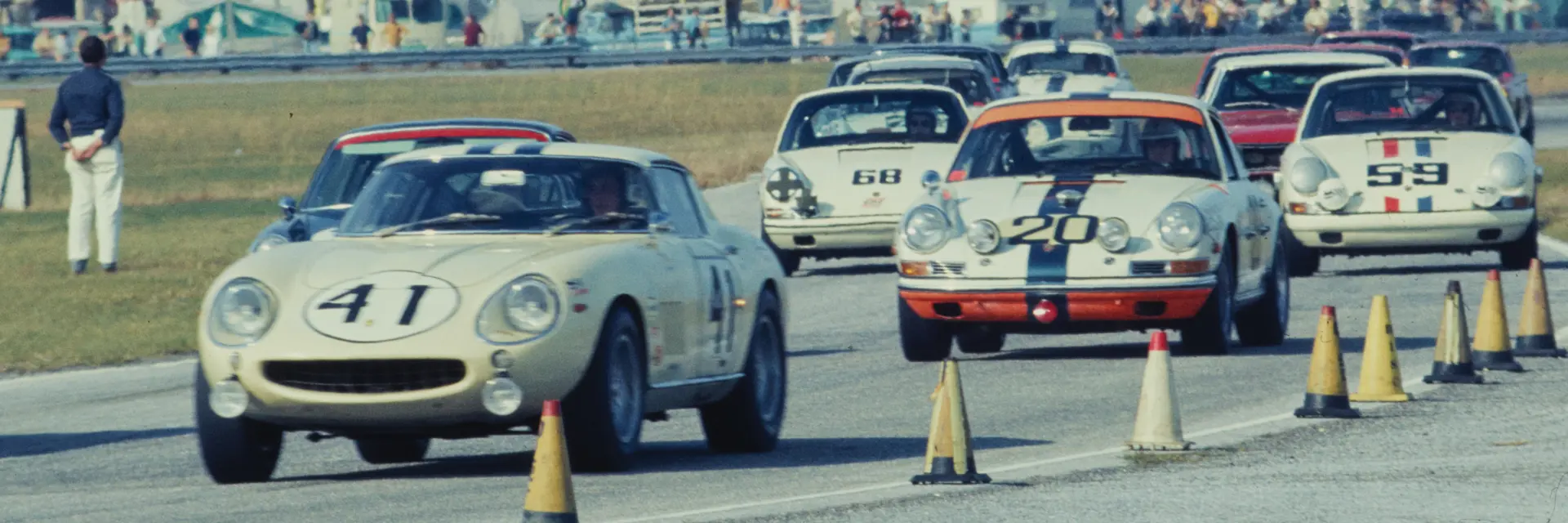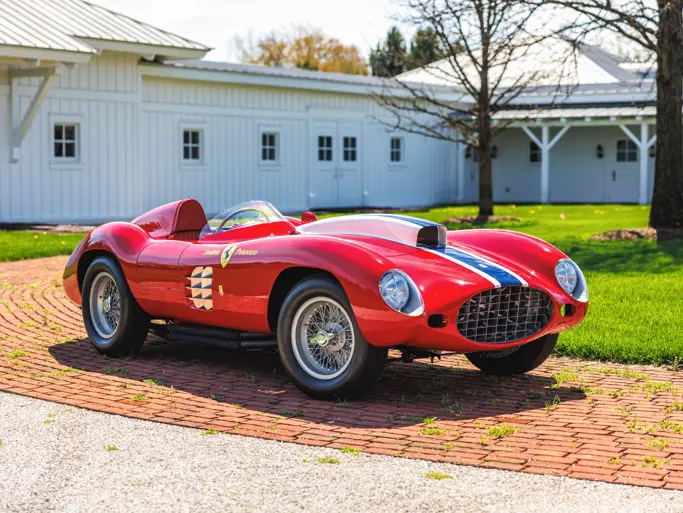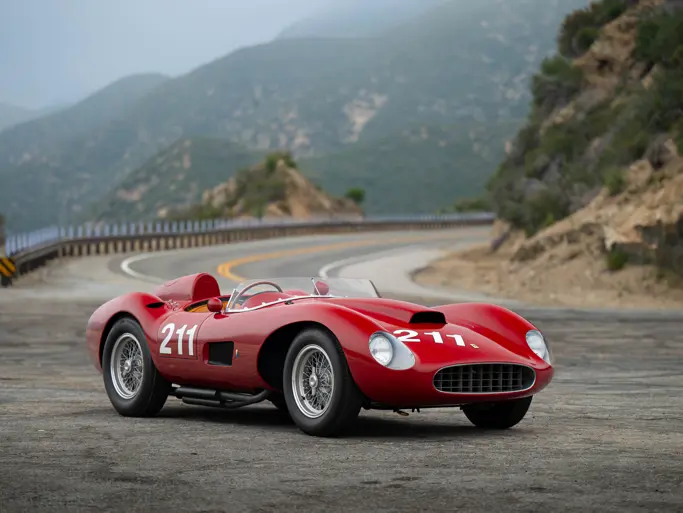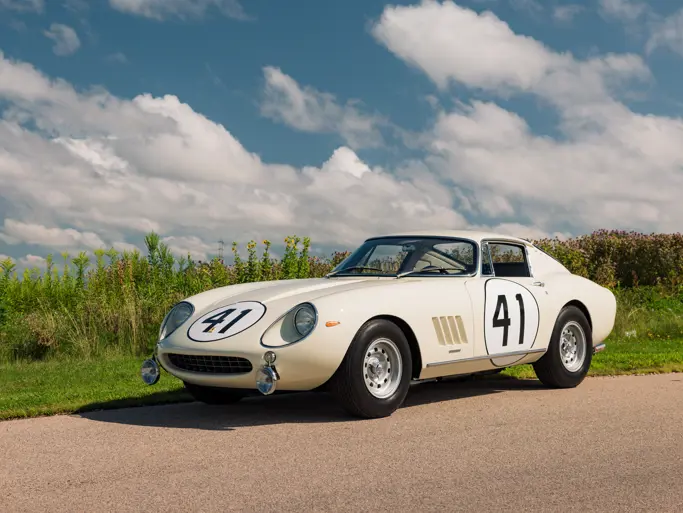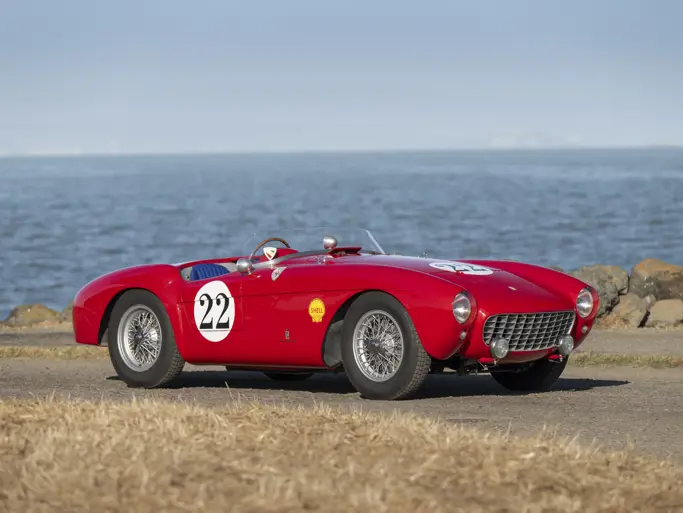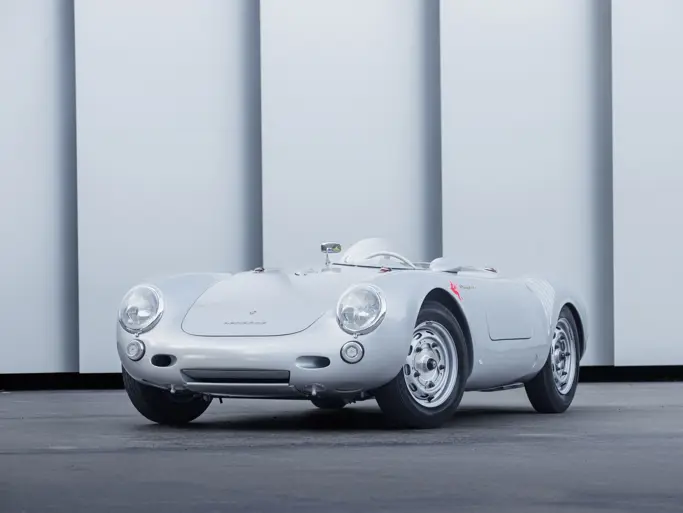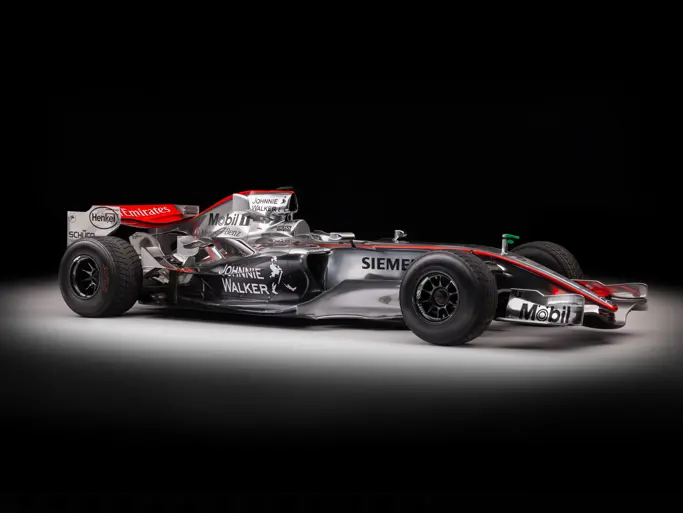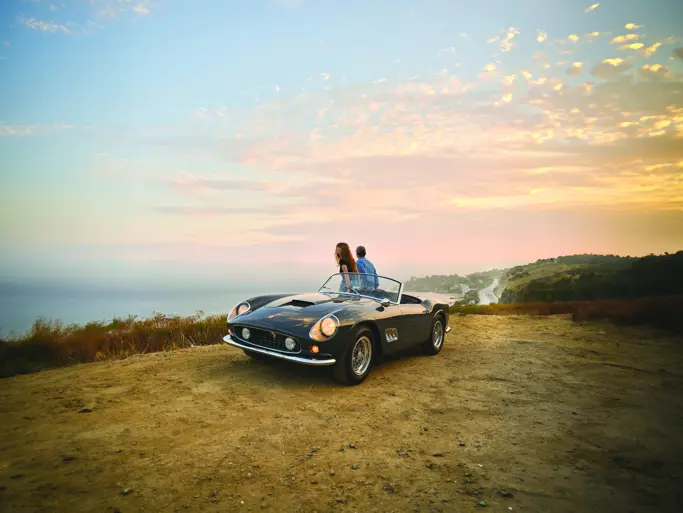For many enthusiasts, there’s no feeling to match being out on track. The only thing better is being able to follow in the tire tracks of your heroes and relive a legendary period of motorsport. The upcoming Monterey auction from 15-17 August offers a number of fantastic opportunities to do just that, with a raft of competition machines covering every period of motorsport set to cross the block in California.
From long-distance enduros including the 24 Hours of Le Mans to the cutting-edge of motorsport, Formula 1, there’s something to suit every taste. We’ve rounded up seven of our favorite competition cars, ranging from a grand prix-winning Michael Schumacher Scuderia Ferrari Formula 1 car to the penultimate Porsche 550 Spyder.
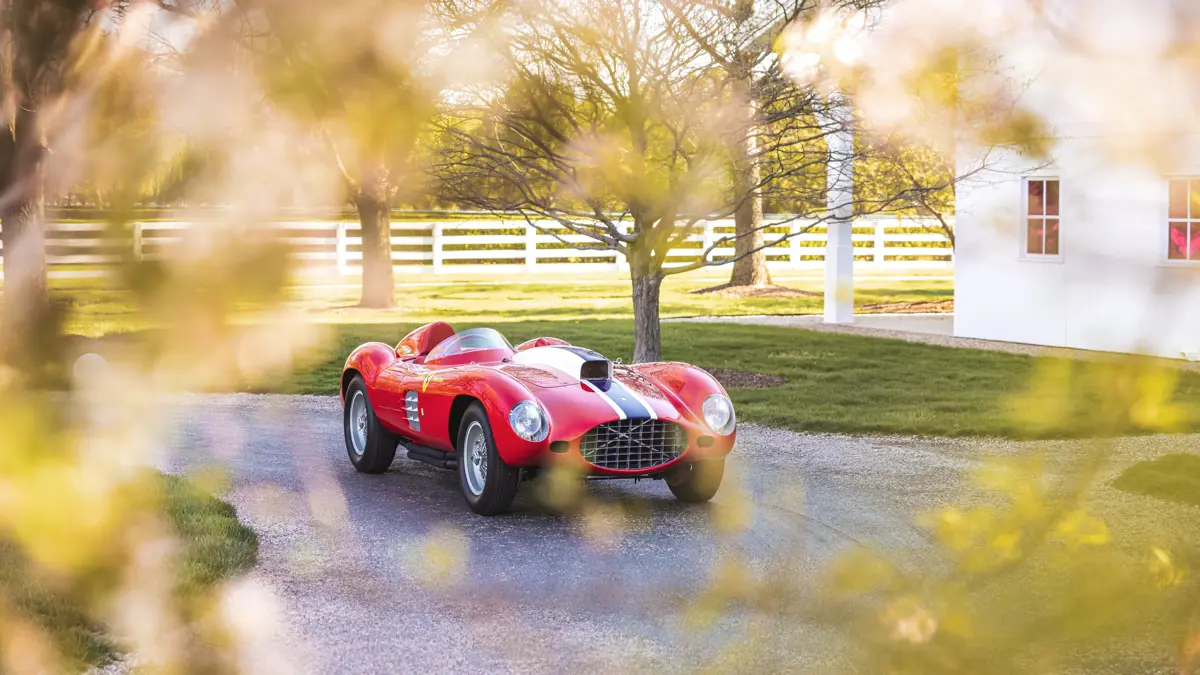
1955 Ferrari 410 Sport Spider by Scaglietti
The Ferrari 410 Sport Spider was bred for racing. And not just any race—the grueling Carrera Panamericana five-day rally through Mexico. Ferrari fitted this new racing machine with a wide, low-riding tubular spaceframe chassis with a shorter wheelbase, in hopes of conquering Mexico’s bumpy roads, and a 4,961-cubic-centimeter V-12, one of Ferrari’s largest engines at the time. However, the Carrera Panamericana was canceled before the 410 Sport Spider and its three sister cars could be driven in anger.
Chassis 0592 CM lived on as a privateer. The first of the four 410s built, it first landed in the hands of Tony Parravano, and would remain the last Ferrari acquired by the legend of Southern California racing. The car’s first competitive outing was at the Palm Springs Road Races in February 1956, where it clinched victory on its debut driven by Carroll Shelby. The car continued to be campaigned by Scuderia Parravano until 1957, when its eponymous founder fled to Mexico in the face of a federal tax lien, taking the 410 with him.

1957 Ferrari 625 TRC Spider by Scaglietti
Enzo Ferrari was ever the opportunist, and perhaps more than any other racer of the 1950s, he managed to turn changes in regulations to his team’s advantage. That was certainly the case in the wake of the 1955 Le Mans disaster, when the Automobile Club de l’Ouest limited engine capacity to 2.5 litres for the following year’s race. Ferrari was ready, taking Aurelio Lampredi’s brilliant four-cylinder Tipo 625 Formula 1 engine and creating the 625 LM. Ultimately, the cars struggled against the more powerful Jaguar D-Type, but it laid the groundwork for a true Maranello great: the 625 TRC.
At the request of John von Neumann, Ferrari combined the brilliant chassis of the 500 TRC with the increased capacity of the Tipo 625 engine to create just two hot-rodded racers that were destined for Southern California. With a 25% increase over the 500 TRC’s 180 horsepower, the 625 TRC was immense on track, and this car—0680 MDTR—became a favorite of the Ferrari importer, achieving 21 top-three finishes, including 10 overall or class victories among over 40 period races. Today, it ranks among the most beautiful and rare competition Ferraris ever produced, with the added benefit of currently being fitted with the same 3-litre Colombo V-12 that powered its 250 Testa Rossa successors. Don’t worry though, the original 2.5-litre ‘four’ accompanies the car.
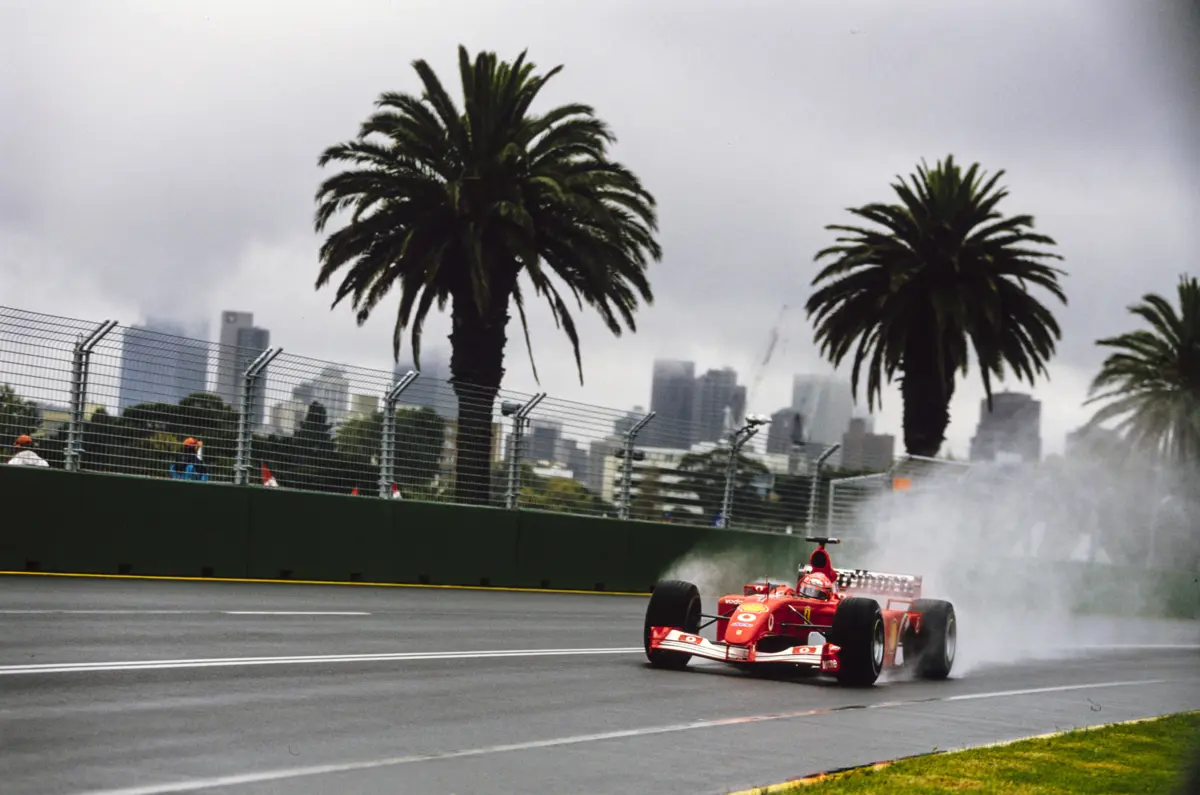
2002 Ferrari F2001b Formula 1
This incredible grand prix car is not only one of just 30 F1 chassis driven to victory by legendary driver, Michael Schumacher, but an example from one of his five F1 Drivers’ World Championship seasons with Ferrari. This car played a pivotal role in Schumacher’s 2002 season, which began with the Scuderia running a modified version of the outgoing 2001 chassis, F2001b, while they refined the one they would use for the rest of the 2002 season. While mechanical issues left some doubt around the car’s potential, Schumacher proved everyone wrong, taking victory in the opening race of the season in Australia. At its second and final outing of the season, Schumacher again finished on the podium, placing him at the top of the Drivers’ Championship that he would clinch just nine races later. Not only is this car a priceless piece of the Schumacher and Ferrari legend, it’s also one of the most celebrated racers of the V-10 era—a period of motorsport that rightly ranks among the most exciting in Formula 1 history.
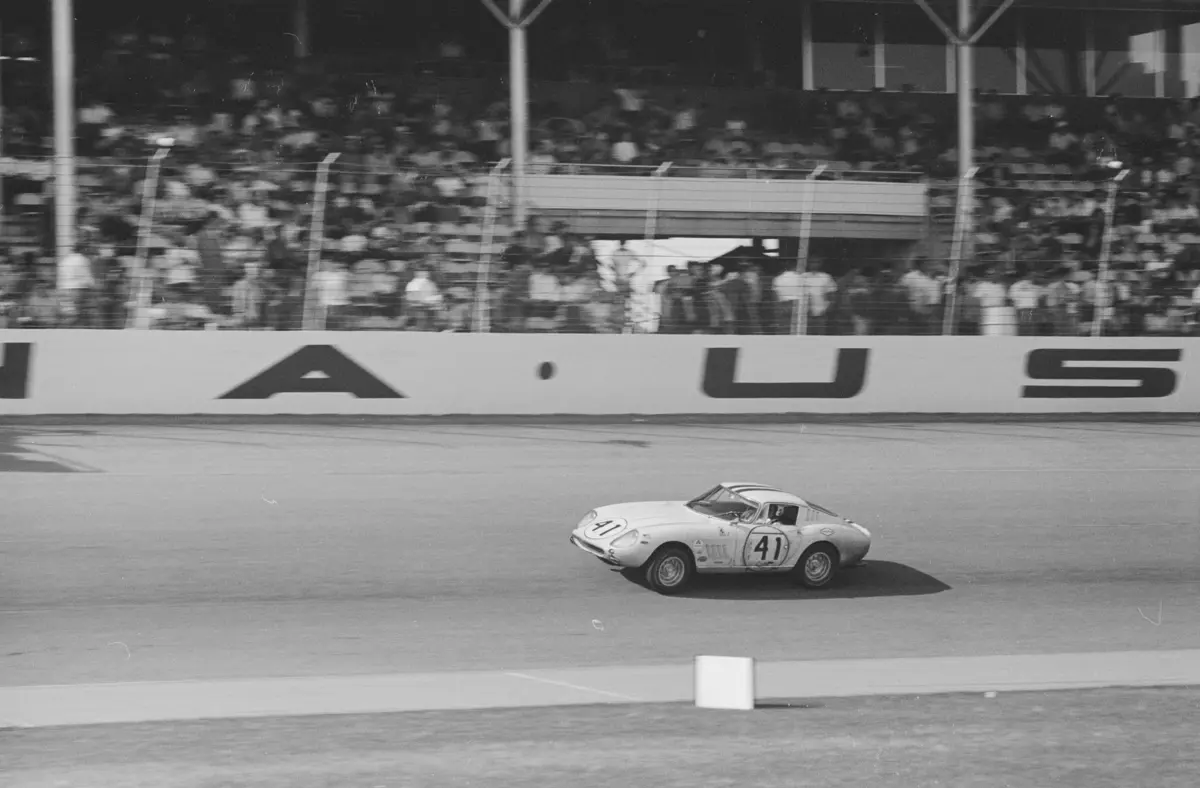
1967 Ferrari 275 GTB/4 NART Alloy by Scaglietti
Luigi Chinetti’s North American Racing Team, or NART, was a force to be reckoned with in the 1960s. It was one of just four privateer racing teams supported directly by the Ferrari factory and boasted a string of fantastic results. This 1967 Ferrari 275 GTB/4 was campaigned with great success by the NART team. Chinetti had initially set his sights on competing at the 1969 24 Hours of Le Mans, but the car failed to pass inspection due to its non-compliant wheels. So Chinetti brought the car back to the United States and the second most important 24-hour race in the calendar, at Daytona, where, numbered 41 for the race, Sam Posey and Riccardo Rodriguez steered the NART 275 GTB/4 to a 1st in class finish, and 23rd overall.
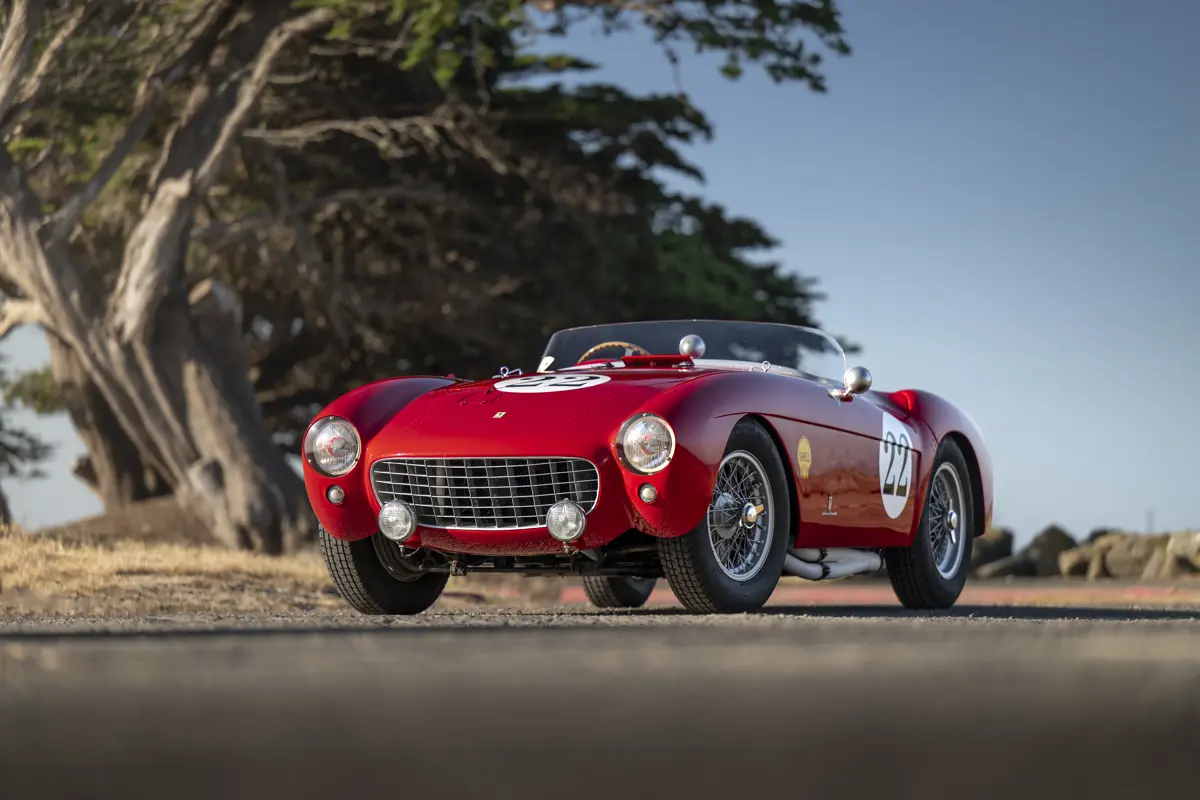
1954 Ferrari 500 Mondial Spider by Pinin Farina
Ferrari and Pinin Farina produced only 13 500 Mondial Spiders, among them this fabulous 1954 example. Just two months after completion, Scuderia Ferrari entered this brand-new car in its first race, the Mille Miglia. Not only did it finish the 1,000-mile Italian epic, it placed 74th. Following its outing at the Mille Miglia, the car was eventually sold to Valdemar Stener, who would kick off this Mondial’s run in Nordic racing, taking on races such as the Ljungsdalbacken and Hedemora, and capturing the Swedish speed record at Varpenloppet in the 1,500-2,000cc class. It would even turn its hand to ice racing. Once retired from competitive racing, the Mondial returned to the scene of its most famous race, taking on the Mille Miglia Storica in 1977, 1982, 1984, 1986-1989, and 1991, in addition to outings at the Monterey Historics.
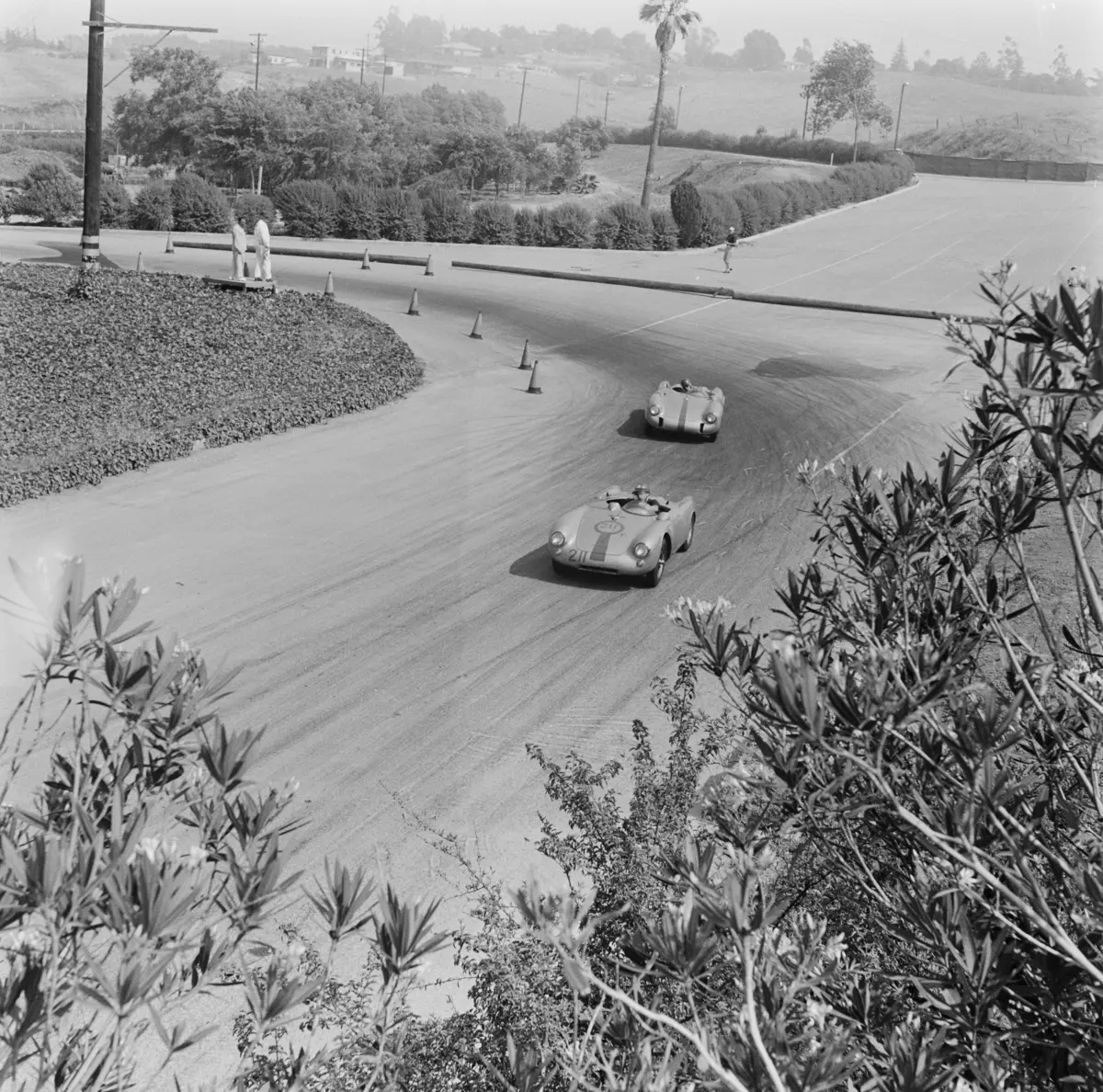
1955 Porsche 550 Spyder by Wendler
Porsche was a company born of competition, but it wasn’t until the 550 Spyder that a model was designed and built specifically with racing in mind. The 550 Spyder boasted advanced components including a tubular chassis and lightweight aluminum bodywork that contributed to a curb weight of just 1,200 pounds. Being so nimble, and so swift thanks to its 1,500-cubic-centimeter four-cam engine, the 550 quickly became one of the fiercest competitors in contemporary sports car events.
This particular example was built for famed Porsche importer John von Neumann and would be the second-to-last 550 ever built. Its first race in October 1956 ended in an early retirement following a small incident, but it came roaring to life just two weeks later in Palm Springs, where it finished 3rd overall with Richie Ginther behind the wheel. Chassis 550-0089 continued a remarkable racing career, contesting at least 20 more events between 1957 and 1958, including coming 1st in class at the Tracy Sports Car Races in 1958, and winning the SCCA Ladies race at Phoenix in November 1958.

2006 McLaren-Mercedes MP4-21 Formula 1
A career eventually ends and begins with this car. The 2006 Formula 1 season was the first following the end of the magical V-10 era, and to mark the change in regulations McLaren-Mercedes F1 team introduced an all-new Mercedes-Benz 2.4-litre naturally aspirated V-8 as its new powerplant, now paired to a seven-speed transmission by McLaren. The beautiful marriage produced 750 horsepower at a dizzying 19,000 rpm. The car in which it would sit, the MP4-21, was designed and developed by Adrian Newey in his final season with the team.
Piloting the cars for the season were Kimi Räikkönen and Juan Pablo Montoya. Montoya was in his sixth and what would be his final season in the series. This particular car, chassis 21A-03, was Montoya’s machine for the first three races of the season, where he placed 5th, 4th, and a DNF in Australia after running wide over a curb caused electrical issues. Montoya raced with McLaren until the end of the United States Grand Prix. Meanwhile, McLaren-Mercedes had brought out chassis 21A-03 to test a new driver who proved to have incredible potential—a young, 21-year-old Lewis Hamilton. Hamilton signed with the team for the 2007 season, earning his first-ever Formula 1 Drivers’ World Championship the following year. It remains one of the vanishingly rare cars outside of a factory collection to have been raced by Lewis Hamilton.
From victorious racers to homologation heroes… see every racing car we’re offering at Monterey.

